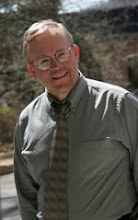Next meeting, make it a point to come early or stay late and talk with someone in the room that is in a different practice. (Think of these as PRSA Sections for counselors, travel, education.) Ask them what is different in their business or organization from your line of business.
Some suggestions for "mining" the vast knowledge that is represented at chapter meetings:
- Find your opposite. If your are a corporate practitioner, seek someone in non-profit. If you work in government, seek out the agency member.
- Make a lunch date. Spend some time talking with someone with expertise representing one of your challenge areas. If you do employee communications, but not as much news media, chat with the media person.
- Shadow them. We host students for a day with a professional. You can, too. Do a "premise visit" to a fellow practitioner's business or organization.
- Ask tough questions. It's one thing to study the code of professional conduct. It's another to discuss it with a fellow practitioner. Ask a veteran about situations. Real life examples make the code come to life.
As we mature our new accreditation study process, I will provide a list of all chapter APRs and their areas of expertise, and they will be available to you for questions or mentoring.
